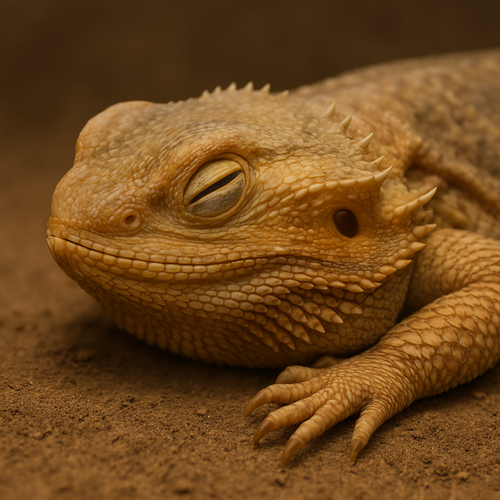Waking up from brumation
Posted by Karen Nilsson on 18th Sep 2023
Waking up from brumation (a reptile's hibernation-like state) is a delicate time for your pet reptile, as they will be transitioning from a period of reduced activity and metabolism to a more active state. Proper care during this period is crucial to ensure their health and well-being. Here are some care tips for your reptile as it wakes up from brumation:
- Gradual Transition: Allow your reptile to wake up naturally. Don't disturb them or try to force them out of brumation. They will start becoming more active on their own as their body temperature rises.
- Warmth: Gradually increase the temperature in their enclosure to their preferred basking temperature. This helps them raise their metabolism and become more active. Make sure to provide a temperature gradient so they can thermoregulate.
- Hydration: Reptiles may lose significant body weight during brumation, so it's essential to provide access to fresh water immediately after they wake up. Offer a shallow dish of water for drinking and soaking.
- Feeding: Do not attempt to feed your reptile immediately upon waking. Give them some time to fully wake up and become more alert. Start with small, easily digestible prey items or foods appropriate for their species.
- Observation: Keep a close eye on your reptile as they wake up. Monitor their behavior, appetite, and overall health. Look for any signs of illness or distress, such as unusual lethargy, labored breathing, or changes in skin color.
- Quarantine: If you have multiple reptiles, consider quarantining the one that just woke up from brumation for a short period to ensure they are healthy before reintroducing them to the group.
- Check for Health Issues: Schedule a veterinary check-up if your reptile doesn't appear to be returning to normal behavior, shows signs of illness, or has any issues with shedding or injuries.
- Lighting: Ensure your reptile has access to proper lighting, including UVB lighting if required for their species. This helps with calcium absorption and overall health.
- Clean Environment: Clean the enclosure thoroughly to remove any waste or mold that may have accumulated during brumation.
- Gradual Activity: Avoid sudden or intense handling or interaction. Allow your reptile to gradually become more active and accustomed to being handled if they are a species that tolerates it.
- Dietary Supplements: Depending on the species, you may need to provide dietary supplements such as calcium or vitamins. Consult with a reptile veterinarian for specific recommendations.
Remember that the exact care requirements can vary depending on the species of reptile you have, so always research the specific needs of your pet and consult with a reptile veterinarian for guidance if you have any concerns during the waking-up process.

